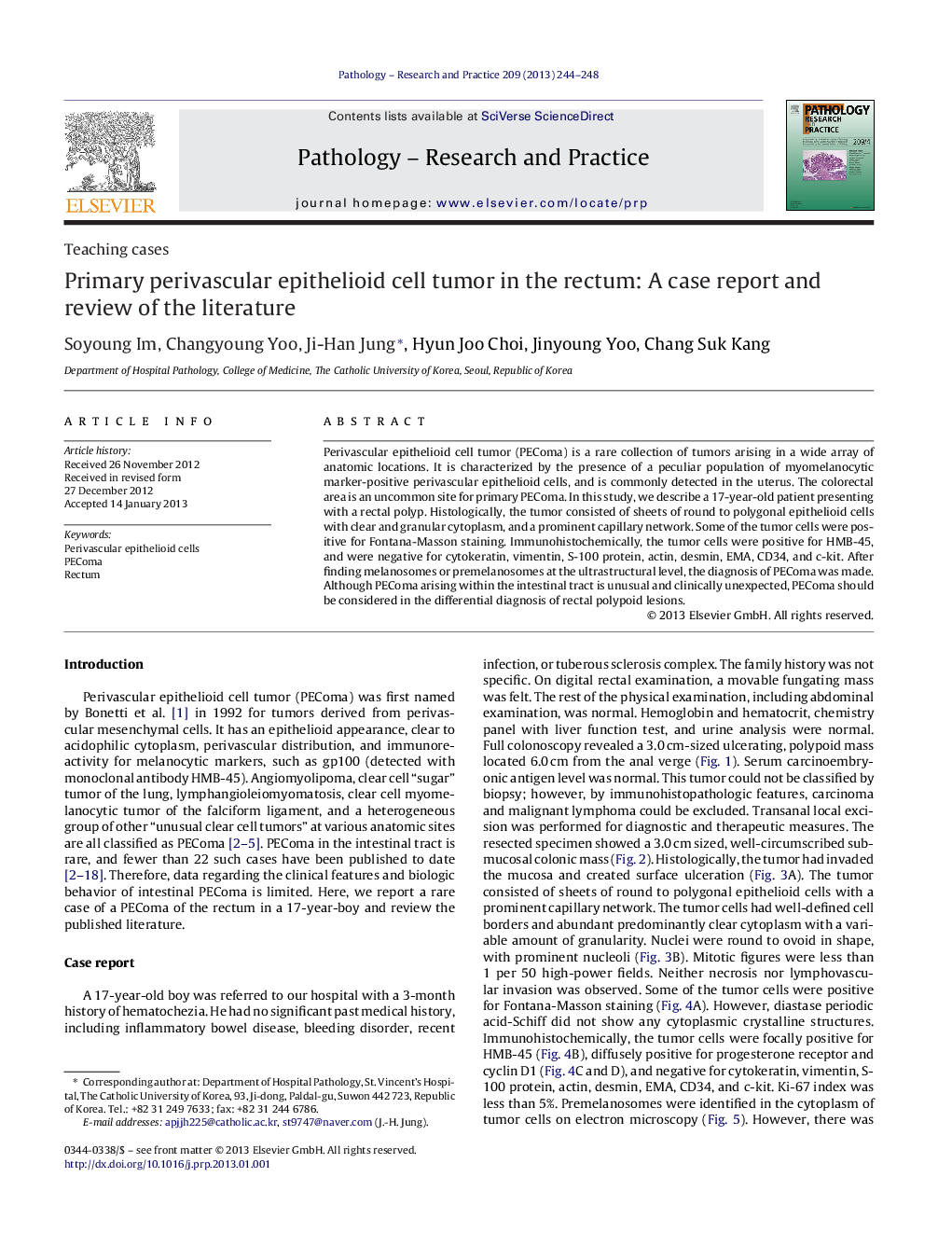| Article ID | Journal | Published Year | Pages | File Type |
|---|---|---|---|---|
| 2155691 | Pathology - Research and Practice | 2013 | 5 Pages |
Perivascular epithelioid cell tumor (PEComa) is a rare collection of tumors arising in a wide array of anatomic locations. It is characterized by the presence of a peculiar population of myomelanocytic marker-positive perivascular epithelioid cells, and is commonly detected in the uterus. The colorectal area is an uncommon site for primary PEComa. In this study, we describe a 17-year-old patient presenting with a rectal polyp. Histologically, the tumor consisted of sheets of round to polygonal epithelioid cells with clear and granular cytoplasm, and a prominent capillary network. Some of the tumor cells were positive for Fontana-Masson staining. Immunohistochemically, the tumor cells were positive for HMB-45, and were negative for cytokeratin, vimentin, S-100 protein, actin, desmin, EMA, CD34, and c-kit. After finding melanosomes or premelanosomes at the ultrastructural level, the diagnosis of PEComa was made. Although PEComa arising within the intestinal tract is unusual and clinically unexpected, PEComa should be considered in the differential diagnosis of rectal polypoid lesions.
